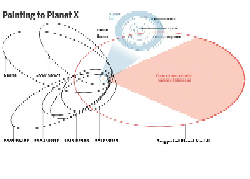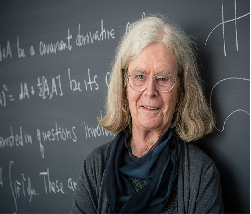April 2019 Research, Science and Knowledge
Read the articles selected in April 2019
Private education is booming in new markets and new forms
Source: The Economist, 11 April

The private sector in education is growing also in Europe, where the State has dominated this sector in the last decades. The new technologies and the new skills required make the private sector more comfortable and attractive for investors, while governments tend to control education as a social good.
Read more:
Ethic Guidelines for Trustworthy AI
By the High-Level Expert Group on Artificial Intelligence set up by the EC
This Guidance makes clear the legal foundation of a trustworthy AI. The norms elaborated on different levels and the obligations they provide, negative and positive, ethical and technical, ensure that every phase of the development and the life cycle of AI systems is harmless to anyone, to the society and the democracies.
Read more:
file:///C:/Users/Roberta%20Capo/Downloads/AIEthicsGuidelinespdf%20(3).pdf
Should schools teach coding?
By Andreas Schleicher
Source: oecd.org, 22 March
Rather than adding ever more subjects, the school curricula should prioritize skills and logical structures that are valid in different fields of knowledge. So, teaching in class today’s digital tools can’t be late for tomorrow’s problems without a deep understanding of the concepts of digitalization.
Read more:
http://oecdeducationtoday.blogspot.com/2019/03/should-schools-teach-coding.html
Why Macron’s “European universities” may be a bad idea
By David Matthews
Source: Times Higher Education, 16 April
Beyond the intention to build an Europe stronger and centralized, critisized by the author of this article for its ideological character, the project of a network of European universities remains valid and a political one, for the values it can widespread in the institutions.
Read more:
https://www.timeshighereducation.com/blog/why-macrons-european-universities-may-be-bad-idea
Higher education is about transformation
By Paul Ashwin
Source: University World News, 13 April
Measuring the quality of education only by the labour market outcomes of graduates reproduces an elitist vision of higher education. Its transformative potential is in how the knowledge acquired has changed students’ view of the world and the sense of themselves.
Read more:
https://www.universityworldnews.com/post.php?story=20190408084550435
Open Access Survey Results
Source: https://eua.eu
The latest outcomes of this Eua Survey present the evolution of the Open Access policies in the European universities, reported since 2014 and in steadily growth with regard to research publications, research data management and research data.
Read more:
https://eua.eu/downloads/publications/2017-2018%20open%20access%20survey%20results.pdf
Trends shaping education 2019
Source: oecd.org
In front of the complexity and the speed of the change touching on every aspect of the individual and societal life, while the sense of belonging is declining or changing, the education should be not only lifelong, but lifewide.
Read more:
https://read.oecd-ilibrary.org/education/trends-shaping-education-2019_trends_edu-2019-en#page16
How mindfulness can help Ph.D. students deal with mental health challenges
By Katie Langin
Source: Science, 27 March

PhD students are a group among the general population where the rates of anxiety and depression are consistent. Different scientific studies show that mindfulness is a good exercise for the brain, leading not only to cope with stress but also to greater resilience and confidence in their capacities.
Read more:
We need to challenge the university monopoly on research
By Thomas Fink
Source: Times Higher Education, 4 April
The idea that education should be informed by the latest discoveries has led to concentrate research in the universities. But when the universities represent only one sector of the knowledge network, there is a win for research quality and efficiency.
Read more:
https://www.timeshighereducation.com/blog/we-need-challenge-university-monopoly-research
The coming “China crisis” in global higher education
By Philip G. Altbach
Source: University World News, 6 April
The consequences of Chinese governative politics on the instruction and the crisis of the idea of a liberal education will have global implications, given that China has the largest number in enrollments and is the biggest exporter of students.
Read more:
https://www.universityworldnews.com/post.php?story=20190403104242366
Open consultation on shaping higher education in the digital era
Source: SPHERE
The new technologies are transforming education and research and are therefore reason of reflexion. The International Association of Universities is bringing about guiding principles for the political reforms and for the institutions that help to manage these changes.
Read more:
https://supporthere.org/news/open-consultation-shaping-higher
Supporting societal engagement of higher education
Source: EQAF
This is the theme of the 2019 European Quality Assurance Forum (EQAF) , hosted by the TU University Berlin. From this perspective, QA is expected to meet the needs of all stakeholders, teaching to graduates as the future workers and citizens.
Read more:
https://eua.eu/component/attachments/attachments.html?task=attachment&id=2047
Measuring Innovation in Education 2019
By Stéphan Vincent-Lancrin, Joaquin Urgel, Soumyajit Kar & Gwénaël Jakotin
Source: oecd.org
Innovation is a transformation in the practice of teaching and learning. The indicators developed in this report thanks to PISA, TIMMS and PIRLS databases show when this change is systemic and the measure of its reach explains the significance of the difference.
Read more:
Automation will make huge demands on universities
By Geoff Maslen
Source: University World News, 27 March
After a report published by the Mc Kinsey&Company in Australia, one 46% of existing job places will be automatized by 2030, but the drammatical consequences of this fact on the work conditions of millions will be restrained in those that have a tertiary education.
Read more:
https://www.universityworldnews.com/post.php?story=20190327122657763
Astronomers say a Neptune-seized planet lurks beyond Pluto
By Eric Hand
Source: Science, 20 January

Researchers have collected data showing evidence of the existence of a like Neptune-seized planet, coming from the early solar system and orbiting around the Sun every 15000 years.
Read more:
https://www.sciencemag.org/news/2016/01/astronomers-say-neptune-sized-planet-lurks-beyond-pluto
Promoting a European dimension to teaching enhancement
By the European Forum for Enhanced Collaboration in Teaching (EFFECT)
Source: https://eua.eu
This study has been thought from the emergence of pedagogical staff development in higher education across Europe, where there is a lack of institutional culture for teaching. EFFECT provides a series of cases and voluntary principles adaptable to different national and institutional contexts.
Read more:
OECD Going Digital
Source: http://www.oecd.org/
With the e-commerce was born twenty years ago a borderless economy which has been the most important means of growth and development around the world. Though already aged, the e-commerce raises juridical and political issues which this toolkit intends to solve.
Read more:
http://goingdigital.oecd.org/en/
Soap-bubble pioneer is first woman to win prestigious maths prize
By Davide Castelvecchi
Source: Nature, 19 March

The mathematician Kare Uhlenbeck has won the 2019 Abel Prize, awarded for her incomparable capacity to use equations to solve problems of geometry and topology, and in particular for the discovery of the so-called bubbling.
Read more:
https://www.nature.com/articles/d41586-019-00932-1
A new way of defining excellence in higher education
By Phil Baty
Source: Times Higher Education, 13 March
Traditional rankings appear to fit for the rich countries and in fact reproduce a disegual model of the world. But there are innumerable less prestigious institutions whose efforts to make the world better through education are not acknowledged. THE has presented a new ranking structured around the SDGs.
Read more:
https://www.timeshighereducation.com/opinion/new-way-defining-excellence-higher-education
Co-creative innovation must be core mission of universities
By Liz Newmark
Source: University World News, 12 March
Universities are becoming more able to address challenges like climate change, globalization and digitalization. Multidisciplinarity is the key to manage the amount of data provided by the economy of information.
Read more:
https://www.universityworldnews.com/post.php?story=20190312074208733

